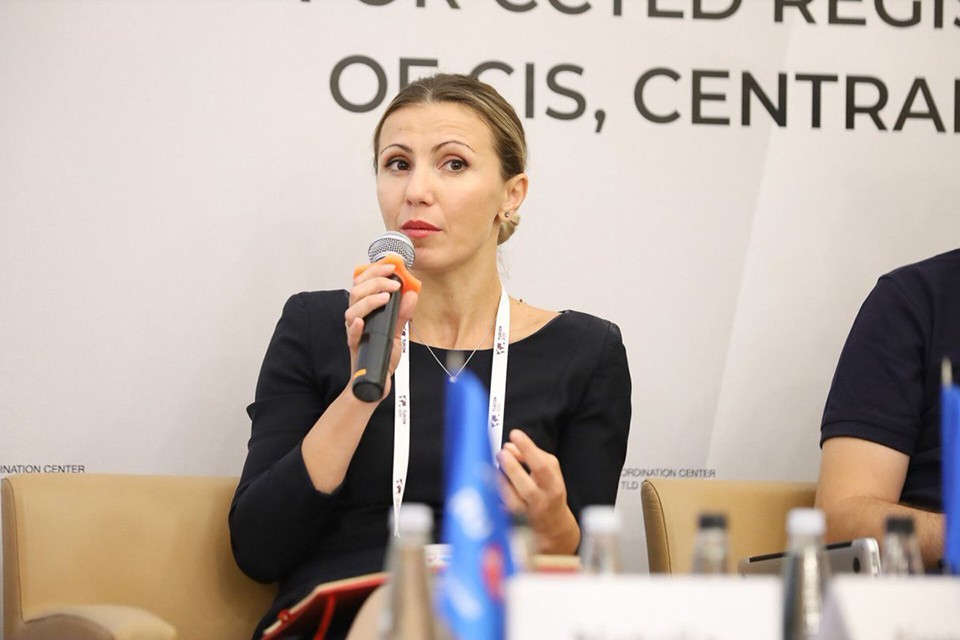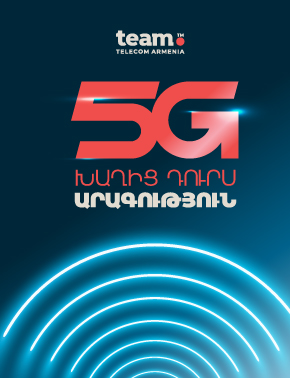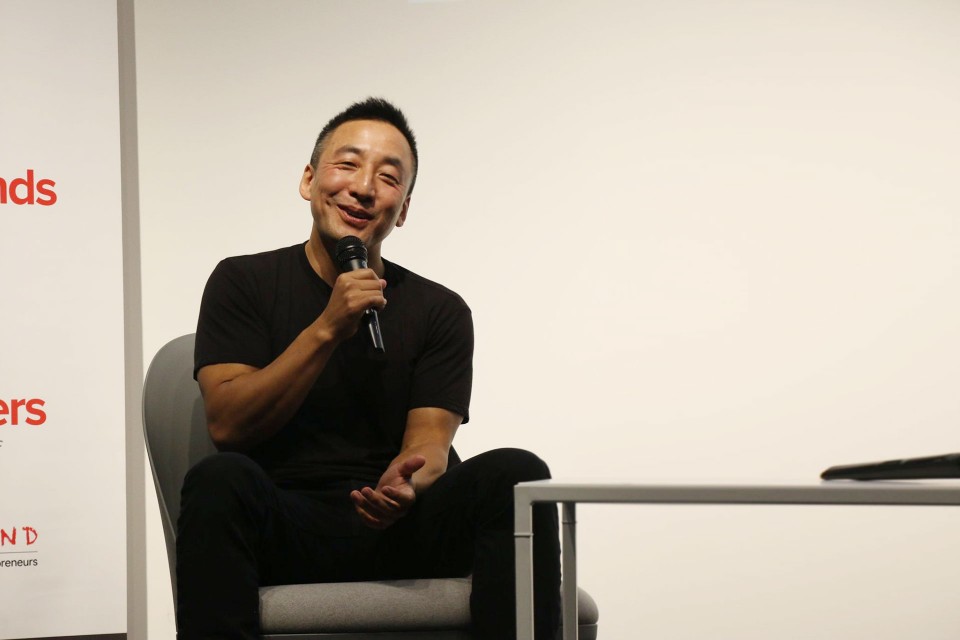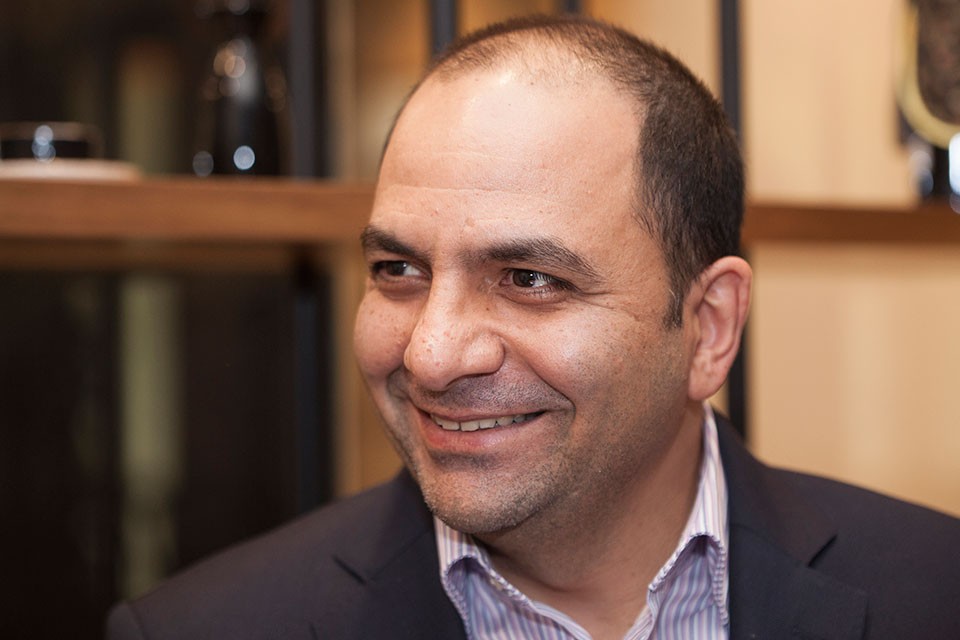-

Natalia Mochu
17:03 | 10.10.19 | Interviews | exclusive 242043
ICANN’s representative: Our activity in the region has grown
On October 11-12 Yerevan will host the fourth Eastern European Domain Name System Forum (EEDNSF) of the Internet Corporation for Assigned Names and Numbers (ICANN), co-organized with the .am/.հայ Registry, ISOC.AM.
The forum aims to raise awareness on issues related to the Domain Name System (DNS), and collaborate with stakeholders. The event raises the international discussions on DNS on the regional stage and discovers the prospects locally and globally.
Ahead of the forum, Itel.am am has talked with Natalia Mochu, Global Stakeholder Engagement Manager at ICANN.
Can you please briefly describe ICANN’s mission and vision?
ICANN is a not-for-profit organization that is about technology. Its vision is to be a champion of the single, open, and globally interoperable Internet, by being the independent, trusted, multistakeholder steward of the Internet’s unique identifiers, and by providing an open and collaborative environment where diverse stakeholders come together in the global public interest.
Along with other technical organizations, it plays a fundamental role in maintaining the stability and security of the Internet. And our mission is to ensure that the Internet remains singular, unified, and interoperable as the next billion Internet users come online. We do this by coordinating parts of the Domain Name System (DNS), which translates computer hostnames into IP addresses, as well as the Internet Protocol addressing system used to route Internet traffic.
Simply put, ICANN is an important part of the system that helps people connect to each other online. Every time you send a friend an email, video chat with family, book plane tickets, or shop online, we are helping you do that in one way or another.
How does ICANN’s work make an impact on the society?
Our work behind the scenes allows you to connect to the Internet.
Without ICANN’s management of this unifying system known as the Domain Name System, or the DNS, we wouldn’t have a trusted, global, and accessible Internet, where it is possible to find each other, anywhere in the world. This is why the security, stability, and resiliency of the top-level DNS root system of the Internet is central to ICANN's mission and core values, and we continue to work with others to ensure a functioning Internet.
When people go online, they need to be able to access content easily, in their local languages. They need to trust that the Internet works, safely and securely. They need to be connected to users around the world, and they need to be able to access the benefits of the digital economy.
ICANN is here to help you with this.
One example of how our work impacts society is ICANN’s Internationalized Domain Names (IDNs) program. As more and more people connect to the Internet, they must be able to find content that’s relevant to them in their chosen language. With IDNs, billions of users from around the world can navigate entirely in their native languages and scripts. This increases participation, promotes online diversity and promises broader social and economic impact. Simply, IDNs make the Internet more useful to everyone.
For here in Armenia, this means the work done towards making the Armenian script a reality. Thanks to the volunteers in the Armenian script community, now you can easily register a domain name in Armenian language under the . հայ domain. Same goes for Cyrillic and many other scripts across the world. Anyone interested in contributing to the work in this field can contact us to get more information about how to participate, and help make a difference for their societies and beyond.
What makes ICANN activities important internationally?
Everything about the way ICANN functions makes it important at an international level. Let me tell you how by going back a little bit.
Think about the Internet. Who governs it? Who makes the rules that make it run? The answer is, there is no single owner or central governing body of the Internet.
It is maintained by a collection of organizations and people working together to set rules, standards and policies, while providing technical support to ensure that the world can be interconnected through this one, single, global system. Since its beginning, the Internet has been the product of ground-up, community innovation focused on the greater good. No one owns the Internet, and at the same time, everyone owns it.
ICANN is one of the players in this story. We develop global policies that are equally applicable to the way the domain name system functions in any part of the world. When doing so, we follow a bottom-up model of governance, the multistakeholder model process. In this model, the policy development and decision-making processes are based on the consensus of stakeholder groups, made up of volunteers from all around the world. This community includes people from different backgrounds and professions, such engineers, students and teachers from the academia, private sector professionals, government officials, civil society representatives, and end-users.
Therefore, it is important for people to participate in ICANN and engage in our policy development processes to ensure all thoughts and views are represented in the final policies. We encourage everyone interested in helping shape the Internet’s future to participate in ICANN, and people from Armenia are no exception to this.
How active is ICANN in this region? What special activities regarding our region can you highlight?
Over the past few years, we have become increasingly active in this region, from participating in industry related events, academic engagements, to organizing capacity development workshops. Among our focus areas is capacity building to enable more informed and effective participation in our processes. For instance, this year we held a registrar training in Moscow, a DNS workshop in Tashkent, and a Domain Name System Security (DNSSEC) training for .GE registry in Tbilisi.
Beyond all these activities, our flagship event in the region is the Eastern European Domain Name System (EEDNS) Forum, which we have been organizing annually since 2016. The creation of this Forum, another one in the family of ICANN’s DNS Fora in other regions, also fosters our interaction with existing stakeholders and newcomers from different parts of Eastern Europe and Central Asia. It serves as a meeting point, a platform for community members and newcomers to share experiences and best practices with their peers and subject matter experts from other countries in the region and beyond.
The first EEDNS Forum in 2016 in Kiev was co-branded with UADOM, run by Hostmaster.UA, an existing respected DNS conference in Ukraine, and it became very popular. In 2017 we moved to Belarus, known for its aspiring IT market and community, and partnered with Hoster.by, administrator for .by/.бел. Last year, the Forum was hosted in Moscow by Coordination Center for .RU/.РФ, and it was the first event ICANN took to Russia.
Now we’re holding the 4th edition in Yerevan, co-organizing it with the .am/.հայ Registry, ISOC.AM. This one will be the first EEDNSF attended by our CEO and President Göran Marby. It will see other high-level participation from ICANN as well, including Board Member Danko Jevtović, and Chief Technology Officer David Conrad. The Forum is free of charge and open to anyone interested. We urge all interested to learn more and register for this event at our page eednsforum.org!
Why and how was it decided to choose Yerevan as a venue for Eastern European DNS forum?
We have been holding the Eastern European DNS Forum in different countries across the region each year to give equal opportunities to our local communities. This way, we are hoping to focus on that specific country to learn about the circumstances and experiences shaping its domain name industry.
We also hope to find solutions to problems and explore potentials together at this event by discussing topics that are relevant to the local audience. This year, thanks to the support of our host am/.հայ Registry, ISOC.AM, we are holding the Forum in the beautiful city of Yerevan. It will take place as part of the first N2 Forum, which will bring together key players of the regional and global Internet community in Yerevan for a series of events. My colleagues are excited to come to Armenia and exchange ideas with the local and regional community members.
What are your expectations from this event and what will be covered in the scope of it?
We hope that this will be a fruitful event and all participants will go back home with new ideas, different perspectives, answers, and even some great questions on their minds.
This won’t be a place where speakers come, present, and leave. At EEDNSF, you will find a living place where you can interact with each other, ask questions, and follow up with people even if you don’t get the answers immediately. Global and local experts will be there to share insights and have constructive dialogues, so that we get to understand each other better.
This year, there are some important discussion topics such as technical and policy issues in the DNS ecosystem, DNS security, Universal Acceptance, Country Code Top Level Domains, and more. Agenda is available in the website.
Narine Daneghyan talked to Natalia Mochu

17:29 | 24.09.25 | Articles
Jacopo Losso on Cross-Border Investments and Why Armenia Attracts Angels








